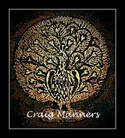|
Throughout the world today, freedom is often taken for granted. Yet freedom is the exception rather than the norm in human history. It is also the case that the institutions of freedom, and particular liberties such as political freedom, religious liberty, civil freedoms, and economic liberty in the West, were decisively shaped by Judaism and Christianity. Knowledge of these contribution, however, is dangerously absent from many public discussions of freedom, and its relationship to other important values, such as dignity and solidarity. How do we bring knowledge of these truths back into public discussion? What are the new threats to these forms of liberty in modern societies whose primary religious roots lie in Judaism and Christianity?
On September 9, 2015, Acton Institute and the Jerusalem Institute for Market Studies will hold a day-long conference in Jerusalem – Judaism, Christianity, and the West: Building and Preserving the Institutions of Freedom – bringing together leading scholars from around the world to discuss the ways in which Judaism and Christianity have contributed to building the foundations of liberty, how Jews and Christians can today contribute to the protection of political, religious and economic freedom, and the ways in which they can assist in building institutional safeguards against populism and arbitrary government. This conference will take place at the Pontifical Institute Notre Dame of Jerusalem Center. This conference is the fourth in the five-part series One and Indivisible? The Relationship Between Religious and Economic Freedom. Download the Conference Poster Follow the conversation #JewishRootsofFreedom http://www.acton.org/program/religious_liberty/judaism-christianity-west-building-preserving-inst
0 Comments
Your comment will be posted after it is approved.
Leave a Reply. |
Craig MannersWhile much of what is written in this Blog may currently appear to be counter-cultural, given our post-truth culture, it is in no way counter-human beings. I am always for people no matter what they think, do, or may have done in their past. Where I put forward ideas or debate against certain ideology, behaviour, ideas, movements, politics, I remain very much on the side of the human beings even though I may be opposed to their worldview, behaviour and politics. Such opposition is generally out of concern for the ultimate consequences of such behaviour or ideas, especially for children. |
- Africa
- Reflections by Craig Manners
-
Articles by Craig Manners
- While We Wait by Craig Manners
- Written on our Hearts by Craig Manners
- Cure for Death by Craig Manners
- Perfect Justice, Perfect Mercy. Only God Could do This. By Craig Manners
- Authority By Craig Manners
- Creation and Providence by Craig Manners
- Forgiveness by Craig Manners
- All Things for Good by Craig Manners
- A Complete Education by Craig Manners
- Humans. Moral beings or not?
- Soviet Era Mass Conversion Therapy Mind Control Set to Control the West by Craig Manners
- On the Road to Adelong by Craig Manners >
- What is Christianity all about? >
- Note Pad
- To be Frank!
- A Cultural Revolution
- Wanted: Men who Understand the Times
- Grieved by the Grievance Virus
Contact Craig Manners
Copyright Craig Manners © 2016 to 2019
